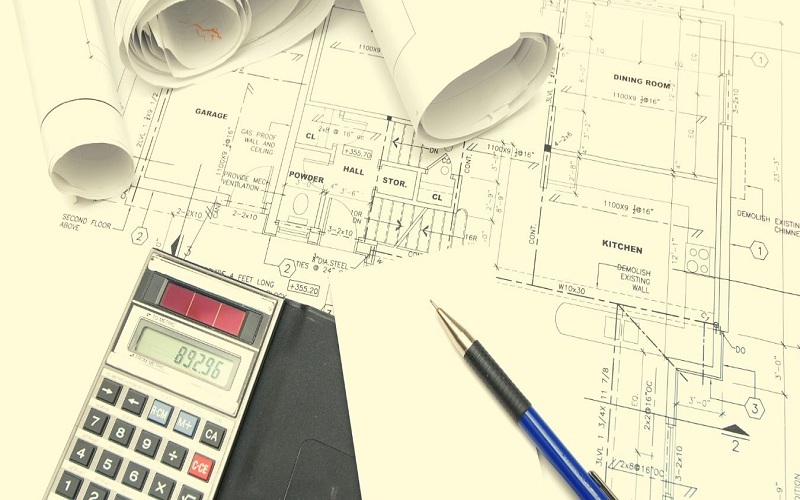Accurate cost estimation is crucial for success in construction projects. But when exactly should cost estimators be engaged for maximum impact? In this article, we’ll examine the key project stages where leveraging construction cost estimating pays major dividends for owners, contractors, and design teams.
Construction cost estimation involves forecasting the total costs required to complete building projects. Cost estimators analyze quotes, historical data, and other factors to predict pricing for materials, equipment, labor, etc. Precise estimates help ensure projects meet budgetary goals without costly overruns.
Traditionally, cost estimators were brought in only periodically to check estimates. But modern technology, like cost-estimating software, enables continuous estimating engagement. This provides deeper insights that improve decisions across the entire project lifecycle. When used strategically, construction cost estimators can add value during planning, design, preconstruction, procurement, and beyond.
Early Planning Stages
The first opportunity to leverage cost estimators arrives in a project’s earliest stages. Even before architectural designs begin, estimators can assist with planning and budgeting. They can provide critical location-specific market data for initial budgets and feasibility studies.
Historical pricing data helps set realistic budgets aligned with project types, scopes, and local construction costs. Estimators also give advice on budgeting best practices to avoid common underfunding issues. This early estimating engagement ensures projects start off on solid financial footing.
Preliminary Design
As architects develop initial designs, cost estimators become invaluable for checking concept budgets. Preliminary plans usually lack full specifications but give a general sense of scope. Estimators can do high-level cost analyses based on proposed building sizes, materials, locations, etc.
This feedback helps correct dramatic budget mismatches before designs progress. If concept estimates reveal major underfunding, plans can be adjusted to match budgets. Identifying red flags early prevents having to drastically redesign later. Cost-estimating consultations should become regular meetings during preliminary design to align vision and costs.
Detailed Design
The design development stage is where cost estimators offer the most value. Here, architects finalize detailed plans, drawings, specs, etc. With a full scope defined, estimators can produce highly accurate pricing projections. Their feedback on detailed designs and line item cost breakdowns acts like a reality check on budget viability.
Optimizing designs to meet budget expectations becomes much easier at this stage. Estimators help model different design scenarios and material options to fit costs. Value engineering also minimizes expenses while upholding quality standards. Regular estimating allows teams to keep designs and numbers reconciled.
Procurement and bidding
The construction cost estimators are indispensable for generating competitive bids and proposals. To source project bids, the contractor’s estimating team compiles takeoffs for all materials, labor, equipment, subcontracts, etc. Precise estimates allow submitting aggressive yet profitable bids to win projects.
During procurement, estimators also account for market influences on costs. This includes fluctuating material prices, labor wage adjustments, equipment rate changes, etc. Up-to-date estimating ensures bids reflect the latest conditions to avoid losses. Cost estimators should be involved throughout bidding to control risks.
Preconstruction
After selecting a contractor, the project transitions into preconstruction. This involves extensive planning, permitting, detailed engineering, and procurement before groundbreaking. Cost estimators have a lead role in these preparations.
For example, they compile detailed quantity takeoffs to identify the best material suppliers and partners. Estimators also develop detailed cost loading schedules for every project phase. And they continually update estimates with new market rates. Exhaustive preconstruction estimating is vital for avoiding hidden costs later.
Construction Monitoring
Even during active construction, cost estimators provide monitoring that keeps budgets on track. They check actual costs against estimates to quickly identify discrepancies. When prices deviate from plans, estimators investigate root causes and offer corrective actions.
For major budget overruns, estimators may recommend cost reduction strategies like contract renegotiations, substitution requests, or scope adjustments. Their oversight across the construction process helps minimize financial surprises and delays to completion.
Value Engineering Evaluations
One of the most useful applications of cost estimators is evaluating potential value engineering options. When estimates reveal budgets are being exceeded, estimators can quantify potential cost savings from VE changes like material substitutions or scope modifications.
Their objective data helps assess different VE alternatives to identify optimal solutions. Estimators also forecast life cycle cost impacts related to changes in maintenance, lifespan, etc. Getting estimators involved early in the VE process enables project teams to stay on budget.
Change Order Assessment
Another key role for cost estimators is assessing pricing for change orders during construction. Change orders involve modifications to the agreed-upon scope of work. Estimators analyze the costs of additional materials, labor, delays, etc. from COs. They validate contractor pricing to protect the owner’s interests and budget.
Estimators also forecast ripple-effect costs that may arise from changes. Their CO assessments prevent disagreements and ensure equitable pricing. This keeps projects moving forward amidst needed alterations.
Payment Application Review
On active jobsites, estimators assist with reviewing contractor payment applications too. These applications invoice for completed work and incurred costs. Estimators compare actuals vs. estimates to check for billing discrepancies.
They help ensure clients pay fairly for the true work in place while preventing overpayment. Estimators also audit losses related to waste or inefficiencies for potential backcharges. Their oversight safeguards budget integrity during construction.
Insurance cost planning
Finally, cost estimators play an important role in forecasting insurance costs for construction projects. Based on historical data and properties like building size, type, location, etc., estimators project insurance premiums for general liability, builder’s risk, and other policies. These costs can then be budgeted appropriately from the outset.
Getting early visibility into expected insurance expenses ensures they don’t catch teams by surprise. This prevents costly budget shortfalls and disputes between project stakeholders.
Conclusion
In summary, construction cost estimators provide indispensable financial guidance across the entire project lifecycle. Early involvement in planning and budgeting sets the right cost expectations from the start. Regular estimating feedback during design alignment optimizes project scopes to meet budgets. Estimators enable competitive bidding and help control material costs. Their oversight during preconstruction and after the groundbreaking also reins in budget overruns.
While cost estimators were previously used only periodically, modern tools like the Remote Estimation Platform enable continuous estimating. Construction teams that leverage estimators throughout their projects will avoid financial pitfalls and achieve optimal budget outcomes.




